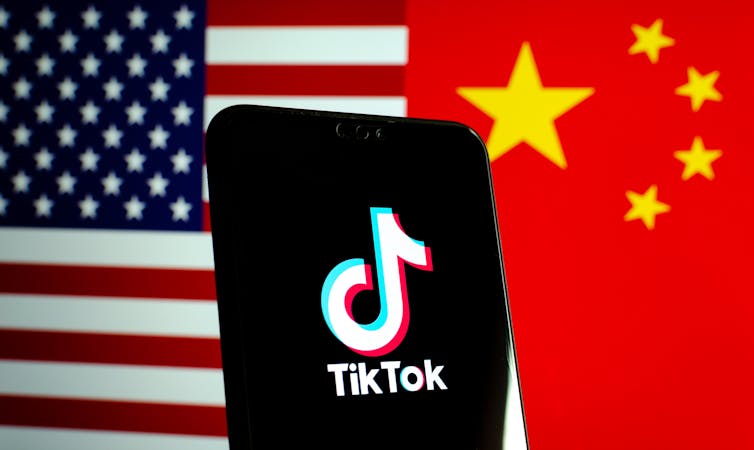Europe invests lots in research and publishes and patents many ideas. But it doesn’t compete with the US and China in transferring its innovation efforts to large, global technology corporations. These are the seven largest US technology corporations, Alphabet (Google), Amazon, Apple, Meta, Microsoft, Nvidia and Tesla 20 times larger than the seven largest within the EU and generate greater than ten times more revenue.
That does not imply Europe doesn’t have technology Success stories. The world’s leading music streaming provider is Spotify, a Swedish company. The Dutch company ASML produces essentially the most advanced on the earth Computer chips and the Danish drugmaker Novo Nordisk leading the extremely profitable marketplace for weight reduction drugs.
European start-ups are literally one too higher deal for enterprise capitalists on average than US ones. But they rarely grow to be major global players. The fundamental reason for that is that Europe regulates more.
Research has shown that that is the case with Europeans less optimistic than Americans want about social mobility Redistribute income greater than within the USA and have a more cautious relationship with it Owning dangerous assets. This results in some very predictable results. Environmental, inequality and life expectancy metrics perform higher in Europe, while the US performs higher on purely economic indicators.
That’s not necessarily bad news. In the race to define the foundations of the technological game, the mix of the vast U.S. tech ecosystem and Europe’s obsession with regulation might be the perfect likelihood to guard consumers, freedom of expression, accountability and transparency all over the world.
Symbiot/Shutterstock
The global leader in regulation
The US Food and Drug Administration (FDA) is to speed up faster its approval of recent medicines because the European Medicines Agency. Pharmaceutical corporations are also granted greater profits: on average, drugs cost more within the USA 3 times dearer than in the remainder of the OECD.
It due to this fact is smart for pharmaceutical corporations to initially develop their products within the USA. The same applies if you ought to develop a brand new synthetic meat, a modified crop or a product linked to artificial intelligence (AI).
Europe could grow faster if it changes its model. But ask European leaders what exact regulations they would really like to see relaxed and you’ll hear deafening silence.
Britain is probably the perfect example. A big a part of the Brexit project was to simplify European rules that were perceived as excessive. However, eight years after the referendum and government, the UK has yet to make any major regulatory changes shows no interest in changing course.
In the US, innovation went hand in hand Market concentration and market power. When corporations have high market power, they might have fewer incentives to innovate. They also start to realize weight political force.

Tada Images/Shutterstock
Europe’s role as an independent regulatory authority could be very essential here. The largest corporations are inclined to adhere to EU law because they wish to retain access to the EU. They also are inclined to offer the identical products all around the world, meaning that European rules apply to everyone.
European rules have clear goals. Those of the EU Digital Markets Actwhich comes into force in March 2024 will lay down rights and rules for giant online platforms – so-called “Gatekeeper” like Google, Amazon or Meta – to stop them from abusing their market power.
Europe also has credibility on the subject of protecting consumers, residents and transparency. There may be no suspicion of favoring European technology champions, because there are not any such champions. Europe can, for instance Judge Tiktok based on whether it violates child protection regulations, quite than based on fears of a Chinese company taking market share away from a European company.
Technology and democracy
Perhaps the perfect example of some great benefits of old regulatory Europe and unfettered America is the present race for AI. The US is a market leader in AI technology, which may power products and applications akin to image generators, voice assistants and search engines like google and yahoo. About half of the world’s investments in AI are currently within the USA.
At the identical time, Europe has already taken several steps towards regulation. Those of the EU Artificial Intelligence Actfor instance, defined different levels the transparency and testing of algorithms depending on how dangerous they may grow to be.
Europe will definitely not win the worldwide AI innovation race. But it has the possibility Write the worldwide rules in keeping with his own values. This means corporations may be held accountable for the impact of their AI tools and supply transparency in regards to the data used for his or her training. This also signifies that an organization’s AI algorithms may be audited.

Ascannio/Shutterstock
But for the EU to set the brand new rules for AI, Western corporations must win the innovation race. Its fundamental competitor is China, where corporations have massive access to government data, including facial recognition. The Chinese government can largely select his champions by deciding who gets access to the info.
China’s regulatory concerns couldn’t be farther from Europe’s. China isn’t considering improving transparency and fair political competition – it wants to make use of data to drive the country’s policies Chinese Communist Partyand discipline and promotion of the national economy.
Far from a contest between Europe and the US for technology supremacy, Western democracies should see their different approaches as a novel opportunity to advertise their shared values. In this context, the absence of huge, global European technology leaders could actually be a blessing.
This article was originally published at theconversation.com





